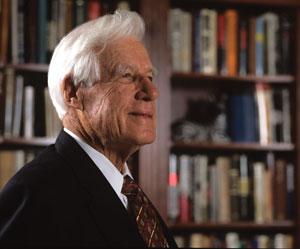By Ahmad Shihadah
Impunity Watch Reporter, Middle East
WASHINGTON DC, USA – A U.S. lawmaker is seeking to revoke the American citizenship of radical cleric Anwar al-Awlaki, who is known for his inflammatory anti-American teachings and his communications with Maj. Nidal Hasan, the suspected shooter in the Fort Hood rampage in November.
Rep. Charlie Dent, R-Pa., introduced a resolution Wednesday urging the Obama administration to strip al-Awlaki of his American citizenship, arguing that the cleric voluntarily renounced his citizenship by recruiting terrorists.
“As recent reports highlight, the U.S. government views al-Awlaki as a proven threat, and will take him dead or alive,” Dent said in a written statement, referring to Obama’s approval of the targeted killing of al-Awlaki. “Being a citizen of the United States of America is more than a right; it’s a responsibility.”
”He’s an inspiration to many of these terrorists,” Dent said. ”This guy is a traitor. This man is a real threat to this country and it’s long since time to deny him his citizenship.”
Legal experts were skeptical of success.
Temple University law professor and international law expert Peter Spiro said the Supreme Court has ruled the U.S. Constitution prohibits the government from terminating an individual’s citizenship against his will.
‘There have also been proposals with respect to other Taliban or other al Qaeda-associated Americans that their citizenship be revoked and those proposals have gone nowhere, and I expect the same thing to happen here,” Spiro said.
Similar efforts to strip so-called ”American Taliban” John Walker Lindh and Yaser Hamdi, an American captured in Afghanistan, of their citizenship failed, he said.
”Maybe that Dent some points politically, making him look like he is tough about terrorism, but this is going nowhere,” he said. Hamdi later surrendered his citizenship in exchange for being released to Saudi Arabia.
Rutgers School of Law constitutional law professor and citizenship expert Linda Bosniak said the Supreme Court has set a high bar for the government to withdraw citizenship from native-born Americans.
”It is considered a constitutional right that individuals should be able to maintain their citizenship unless the government can prove they affirmatively desire to renounce it,” Bosniak said.
Certain acts, such as treason or serving in a foreign army in conflict with the United States, are presumed to be ”expatriating acts,” she said. But to strip someone of his citizenship the government has to prove that the acts were committed and that they were done voluntarily and with the intent of relinquishing citizenship.
Dent said he’s heard those arguments but he contends that al-Awlaki is voluntarily a traitor. ”He has declared war on the United States,” Dent said. ”He has voluntarily revoked his citizenship by his own actions.” Al-Awlaki could appeal but would have to return to the United States, where he would face arrest.
For more information, please see:
Fox News – Rep. Introduces Resolution To Strip Radical Cleric Of Us Citizenship – 22 April 2010
Pennsylvania Ave. – Rep. Dent Takes Lead On Revoking Islamic Cleric’s Citizenship – 21 April 2010
The Morning Call – Dent Wants to Revoke U.S. Citizenship Of Radical Cleric – 22 April 2010

